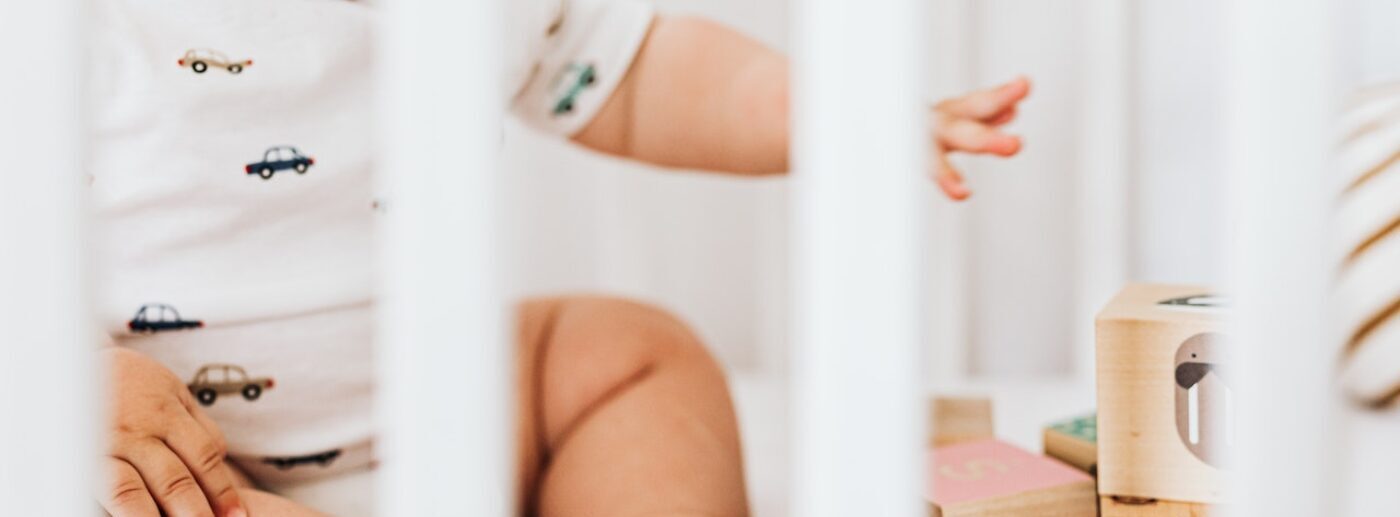At what age a baby needs their own room is a question that many parents ask themselves. There is no single answer to this question, as the right time for a baby to have their own room will depend on a variety of factors, including the family’s living situation, the baby’s temperament, and the parents’ personal preferences.

The American Academy of Pediatrics recommends that babies sleep in the same room as their parents for at least the first six months of life, and preferably for the first year. This is because sharing a room with parents can reduce the risk of Sudden Infant Death Syndrome (SIDS) and other sleep-related problems. However, after the first year, many parents choose to move their baby to their own room.
Here are some factors to consider when deciding when to move your baby to their own room:
- Living Situation:
Your living situation may influence when your baby should move to their own room. If you live in a small apartment or have limited space, you may choose to keep your baby in your room for longer. If you have a larger home or a spare room, you may be able to move your baby to their own room sooner. - Baby’s Temperament:
Some babies are more independent and may be ready for their own room earlier than others. If your baby is a good sleeper and easily soothes themselves back to sleep, they may be ready to move to their own room sooner. - Parent’s Personal Preferences:
Ultimately, the decision of when to move your baby to their own room will depend on your personal preferences as a parent. Some parents may feel comfortable having their baby in their room for the first year or longer, while others may feel ready to move their baby to their own room sooner. - Safety Considerations:
When moving your baby to their own room, it’s important to make sure that the room is safe and free of any hazards. This includes ensuring that the crib meets safety standards, using a firm mattress and tight-fitting sheets, and keeping soft bedding and toys out of the crib.
In general, most babies are ready to move to their own room between 4 and 6 months of age. However, this will vary from family to family and depend on a variety of factors. Ultimately, the decision of when to move your baby to their own room should be based on what feels right for you and your family. By considering the factors discussed here and taking the necessary safety precautions, you can create a safe and comfortable sleeping environment for your baby.
Some parents choose to keep their baby in their room for longer than the first year, while others may feel comfortable moving their baby to their own room sooner. There is no one-size-fits-all answer to this question, as it ultimately depends on the family’s unique situation and personal preferences.
When deciding whether or not to move your baby to their own room, it’s important to consider the benefits and drawbacks of each option. Keeping your baby in your room can help you feel more connected to your baby and can make it easier to monitor their sleep and feeding patterns. However, it can also be disruptive to your own sleep and may make it more difficult for your baby to learn how to sleep independently.
Moving your baby to their own room can help promote a sense of independence and can make it easier for you to get a good night’s sleep. However, it can also be a difficult transition for both you and your baby, and may require some adjustment.
If you do decide to move your baby to their own room, there are several steps you can take to make the transition as smooth as possible. These may include gradually transitioning your baby to their own room by starting with naps, setting up a comfortable and safe sleeping environment, and establishing a bedtime routine.
Ultimately, the decision of when to move your baby to their own room should be based on what feels right for you and your family. By considering the factors discussed here and taking the necessary safety precautions, you can create a safe and comfortable sleeping environment for your baby, whether they sleep in your room or their own.
It’s also important to note that some families may not have the luxury of a separate room for their baby, especially in small apartments or shared living situations. In such cases, it’s possible to create a separate sleeping area for the baby within the same room as the parents. This can be done by using a divider or partition to create a separate space for the baby’s crib or bassinet.
Regardless of when your baby moves to their own room, it’s important to ensure that their sleeping environment is safe and conducive to good sleep. This includes using a firm and flat mattress, avoiding soft bedding and toys in the crib, and keeping the room at a comfortable temperature.
A dedicated nursery is not strictly necessary for a baby’s first year. Many families choose to keep their baby in their room for the first year or longer, or to create a separate sleeping area within their own room.
In summary, the right time for a baby to have their own room will depend on a variety of factors, including the family’s living situation, the baby’s temperament, and the parents’ personal preferences. While the American Academy of Pediatrics recommends that babies sleep in the same room as their parents for the first year, there is no one-size-fits-all answer to this question. By considering the factors discussed here and taking the necessary safety precautions, you can create a safe and comfortable sleeping environment for your baby, whether they sleep in your room or their own.
